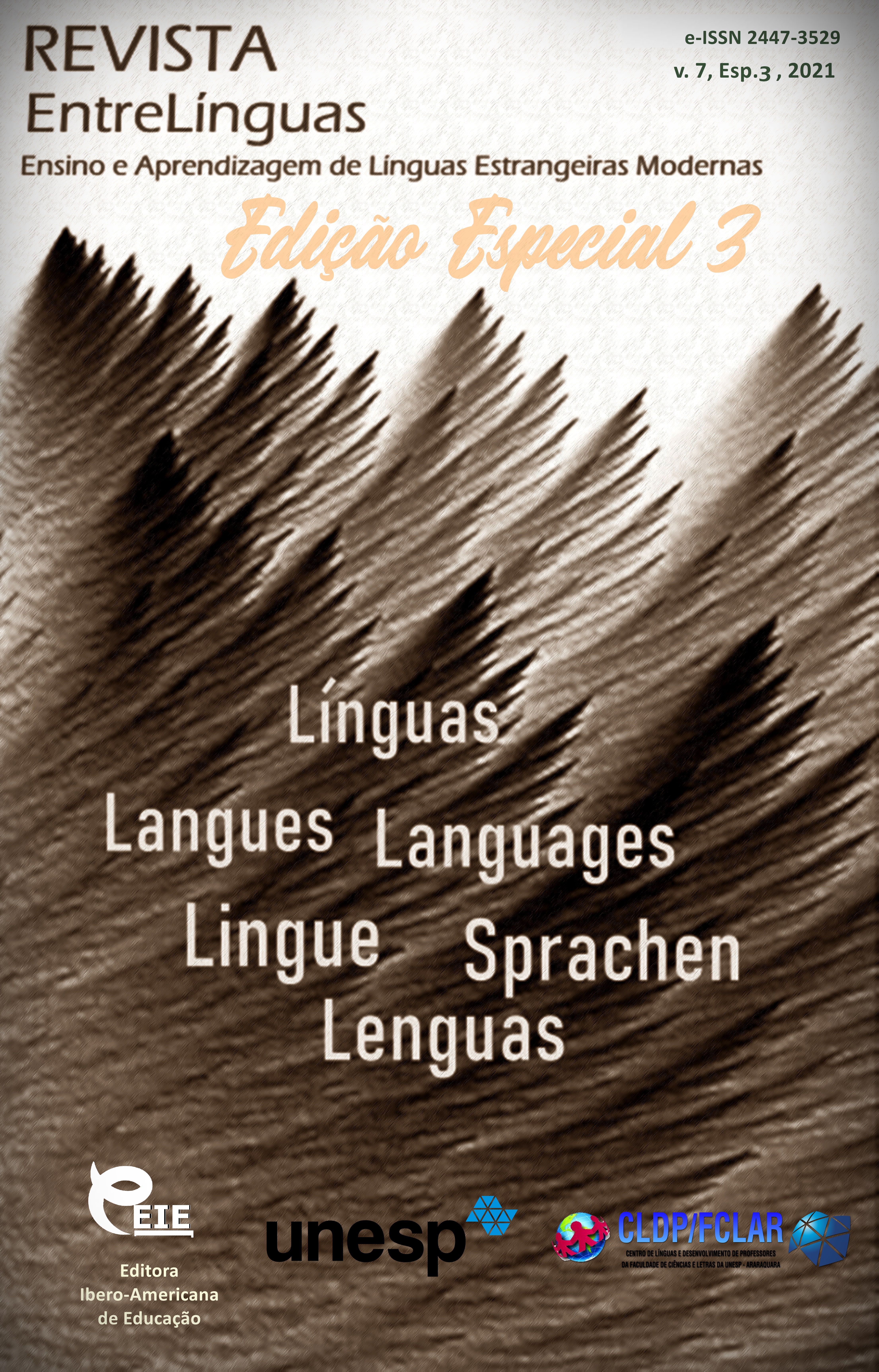Cultural implications of translation of colombian spanish realia into russian
DOI:
https://doi.org/10.29051/el.v7iesp.3.15703Keywords:
Realia, Linguistics, Culture representation, Intercultural communication, Teaching translationAbstract
This article focuses on the methods of translation and interpretation of Colombian Spanish realia into the Russian language on the material of the novels by Gabriel García Márquez. Realia as a linguistic unit is extremely essential in the process of language education, but at the same time causes difficulties with its translation. During the era of international communication and collaboration in many spheres including literature, it is of major importance to adapt some foreign concepts and realia for the receiving cultures. At the Kazan Federal University the students, as future translators, have taken part in a research aiming at analyzing various possibilities of translation and transfer of cultural peculiarities linked to 200 Colombian realia, selected from the works of the famous Colombian novelist. It has been found out that over 94% of the respondents have faced a problem of understanding the text due to words meaning unknown to the reader. The results obtained feature the most popular ways of rendering the realia meaning employed by the Russian translators.
Downloads
References
ANTONOVA, N. V; MYAGKOV, G. P; NIKOLAEVA, O. A. Genesis problem of philosophical thought in spanish historiography [Problema de génesis del pensamiento filosófico en la historiografía española]. Utopia y Praxis Latinoamericana, v. 24, n. 5, p. 65-71, 2019.
FLORIN, S. Realia in Translation. In: FLORIN, S. Translation as social action: russian and bulgarian perspectives. London: Routledge, 1993.
GONZÁLEZ, J. M. et al. Peculiarities of gastronomic realias translation on the lessons of the Spanish as a second language. In: INTERNATIONAL TECHNOLOGY, EDUCATION AND DEVELOPMENT CONFERENCE, 14., 2020, Valencia. Proceedings […]. Valencia, Spain: INTED2020, 2020. p. 2729-2733.
MARQUEZ, G. Sto let odinochestva (One hundred years of solitude). Moscow: ACT Publishing House, 2016. 416 p.
MARTÍNEZ, I. B. Obstacles in realia translation from the spanish language into the russian language. In: INTERNATIONAL TECHNOLOGY, EDUCATION AND DEVELOPMENT CONFERENCE, 11., 2017, Valencia. Proceedings […]. Valencia, Spain: INTED2017, 2017. p. 2711-2714.
MARTÍNEZ, P. T, ANTONOVA, N. V. Spanish philosophy: a reality or a myth? Journal of Sociology and Social Anthropology, v. 10, n. 4, p. 209-213, 2019.
MONTES, G. J. J. El español de Colombia: propuesta de clasificación dialectal. Bogota: Istituto Caro y Cuervo, 1982. p. 23-92.
OROZCO, R. El castellano del Caribe colombiano a comienzos del siglo XXI. Revista Internacional de Lingüística Iberoamericana, v. 7, p. 95-114, 2009.
VASILOVA, L. R. et al. Analysis of translation of figures of speech into english, spanish and turkish. Opcion, p. 934-948, 2019.
VINOGRADOV, V. S. Introduction into translation studies (general and lexical issues). Moscow: Institute of general secondary education Publishing house of RAO, 2001. 224 p.
Published
How to Cite
Issue
Section
License

This work is licensed under a Creative Commons Attribution-NonCommercial-ShareAlike 4.0 International License.
Os manuscritos aceitos e publicados são de propriedade da Revista EntreLínguas. Os artigos publicados e as referências citadas na Revista EntreLínguas são de inteira responsabilidade de seus autores.
Transferência de direitos autorais – autorização para publicação
Caso o artigo submetido seja aprovado para publicação, já fica acordado que o(s) autor(es) autoriza(m) a UNESP a reproduzi-lo e publicá-lo na EntreLínguas, entendendo-se os termos “reprodução” e “publicação” conforme definição respectivamente dos incisos VI e I do artigo 5° da Lei 9610/98. O artigo poderá ser acessado pela rede mundial de computadores (Internet), sendo permitidas, a título gratuito, a consulta e a reprodução de exemplar do artigo para uso próprio de quem a consulta, desde que haja a citação ao texto consultado. Essa autorização de publicação 328 EntreLínguas, Araraquara, v. 1, n .2, p. 323-328, jul./dez. 2015 não tem limitação de tempo, ficando a UNESP responsável pela manutenção da identificação do(s) autor(es) do artigo. Os artigos publicados e as referências citadas na Revista EntreLínguas são de inteira responsabilidade de seus autores.











